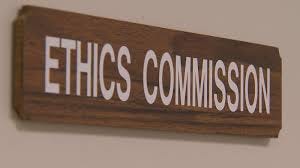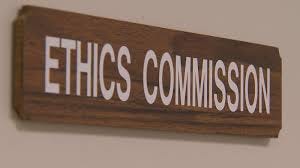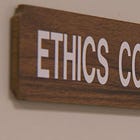Ethics Commission Wrestles With Legislative Changes
The Ethics Commission continues to examine complaints filed regarding legislators activities, while developing rules to treat cases more fairly and consistently.
This week, the Ethics commission is making headlines as they have formally weighed in on the situation with Representative Jason Dockter:
From the North Dakota Monitor:
The North Dakota Ethics Commission found Rep. Jason Dockter committed three ethics violations related to his ownership of a Bismarck building, but the agency did not hand down any penalties for the lawmaker.
The announcement, released Friday evening, marks the first time the commission has declared that a public official engaged in unethical behavior.
The Ethics Commission noted the Bismarck Republican likely leveraged his position and his relationships with state employees to arrange a lease with the Attorney General’s Office, according to the commission’s 93-page investigation report.
The report also identified unanswered questions regarding the finances of the building and highlighted challenges that stalled the investigation, including witnesses who declined to be interviewed.
Dockter chose not to appeal the decision, according to the commission. The commission concluded that in this circumstance, it’s up to the Legislature to decide whether disciplinary action is necessary.
Dockter is the partial owner of a company that leases a building located at 1720 Burlington Drive in south Bismarck to the North Dakota Attorney General’s Office and Department of Health and Human Services. At one point, North Dakota Information Technology was also a tenant, according to the report.
In 2023, Dockter voted in favor of two budget bills that set aside money for the Attorney General’s Office and Department of Health and Human Services leases. State law and ethics rules forbid lawmakers from voting on legislation that could give them a unique financial benefit.
[…]
The commission also discovered that Dockter partially owns three other Bismarck properties that are leased or were previously leased to state entities:
601 Channel Drive, which was previously leased to the Highway Patrol and is now rented to the Department of Corrections and Rehabilitation
1700 Schafer St., which is leased to Bismarck State College
1838 E Interstate Ave., which is leased to the North Dakota Board of Pharmacy
The commission says that its conflict of interest rules don’t set specific penalties for violators, so the agency did not penalize Dockter for the violations.
According to the commission, the Legislative Assembly can make a determination of whether Dockter violated House rules requiring lawmakers to declare conflicts on bills they have special interests with. It also has the discretion to pursue disciplinary action against Dockter.
Read the full North Dakota Monitor article here, they have done great work on this topic over the years this situation has unfolded.
These findings come a year after Representative Dockter was convicted of violating the state’s conflict of interest laws:
Following this episode, North Dakota Republicans took steps to change the laws and their own rules to insulate members from these enforcement actions.
Last year, I filed my own Ethics Commission Complaint against Representative Emily O’Brien regarding her role in the Bioscience Association of North Dakota (BioND), and how it seemed like during testimony and floor discussions, she was not entirely forthcoming about her role with the organization and her motivations in promoting the organization. (Not all legislators inherently know what eachother does for a living.)
For background on this whole situation read the following articles:
Then, just this last week, I received a letter from the Ethics Commission stating that the commission is still looking into the matter, but that they must now take into account the changes the North Dakota Legislature put into effect in the 2025 legislative session, which were rolled into the final version of SB 2004.
Luckily, the legislature removed the 180-day window rule that they really wanted from the final bill or else the time clock would likely run out on this particular complaint because of the complexity and seriousness.
Considering the Ethics Commission is just now issuing their report on Representative Jason Dockter, years after the complaints in his situation, and a full year after the court system has already convicted him, any arbitrary deadlines would be nothing more than a cover-up provision.
Because North Dakota put off dealing with its ethical problems, and because the legislature has taken a confrontational and adversarial approach, the Ethics Commission is forced to develop its rules at the same time as investigating.
Citizens should encourage their legislators that have nothing to hide to convince their colleagues to get the legislature out of the way of these processes.
Stonewalling and attempting to rig the system will not help anybody.
















